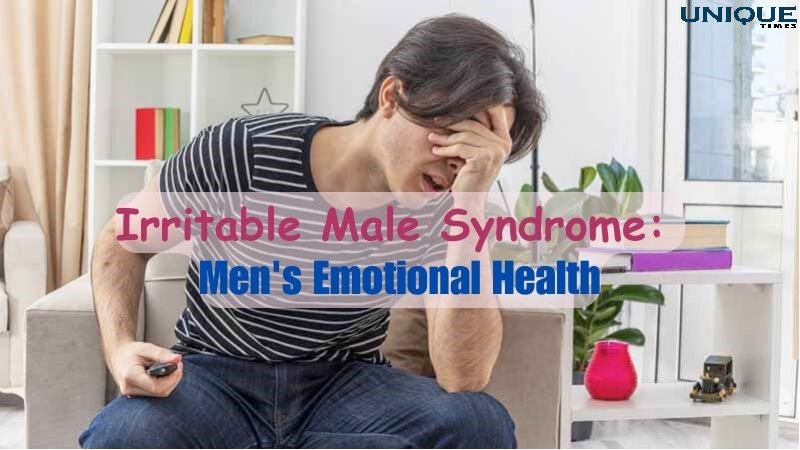Breaking the Stigma: Irritable Male Syndrome (IMS) and Men’s Emotional Health

When it comes to discussions about hormonal fluctuations and mood swings, premenstrual syndrome (PMS) in women often takes center stage. However, what many people may not be aware of is that men can also experience symptoms similar to PMS. This phenomenon is known as Irritable Male Syndrome (IMS). In this blog post, we will explore IMS, its symptoms, and why it’s essential to acknowledge men’s emotional health and well-being.
Understanding Irritable Male Syndrome (IMS): Irritable Male Syndrome, often abbreviated as IMS, is a term used to describe a collection of physical, emotional, and behavioral symptoms that some men experience. While IMS shares some similarities with PMS in women, it is not a direct mirror image. IMS is primarily associated with fluctuations in male hormones, particularly testosterone.
IMS Symptoms: Men who experience IMS may encounter a range of symptoms, including:
- Mood Swings: IMS can lead to abrupt and intense mood swings, with men experiencing irritability, anger, and sadness.
- Fatigue: Fatigue and low energy levels are common symptoms of IMS, which can impact a man’s overall well-being and daily activities.
- Increased Stress: Men with IMS may find themselves more susceptible to stress and anxiety, affecting their ability to cope with daily challenges.
- Reduced Libido: Changes in hormone levels can lead to a decrease in sexual desire and performance.
- Sleep Disturbances: IMS can disrupt sleep patterns, leading to insomnia or restless sleep.
Hormonal Fluctuations and IMS: IMS is often attributed to fluctuations in testosterone levels, which can occur due to various factors such as aging, lifestyle, or stress. Testosterone is a key hormone that influences mood, energy, and sexual function in men. When testosterone levels fluctuate, it can contribute to the symptoms associated with IMS.
Acknowledging Men’s Emotional Health: Historically, discussions around men’s emotional health and well-being have been limited. The existence of IMS serves as a reminder that men, like women, can experience hormonal changes that affect their emotions and overall health. It’s crucial to challenge the stigma around men expressing their emotional struggles and to encourage open conversations about mental and emotional well-being.
Seeking Support: Men experiencing IMS should consider seeking support and guidance from healthcare professionals. Treatments may include hormone therapy, lifestyle changes, and strategies to manage mood swings and stress.
Conclusion: Irritable Male Syndrome sheds light on the complexity of hormonal fluctuations and their impact on men’s emotional health. By acknowledging IMS and discussing men’s emotional well-being openly, we can create a more inclusive and understanding society that supports individuals in managing their physical and emotional challenges. Ultimately, everyone deserves the opportunity to live a healthy and fulfilling life, regardless of their gender.
Picture Courtesy: Google/images are subject to copyright








